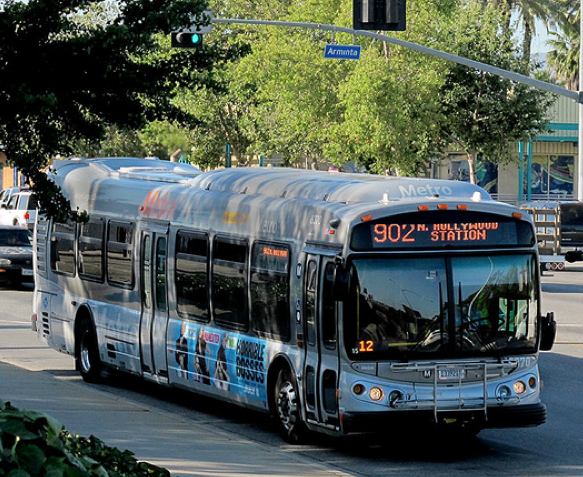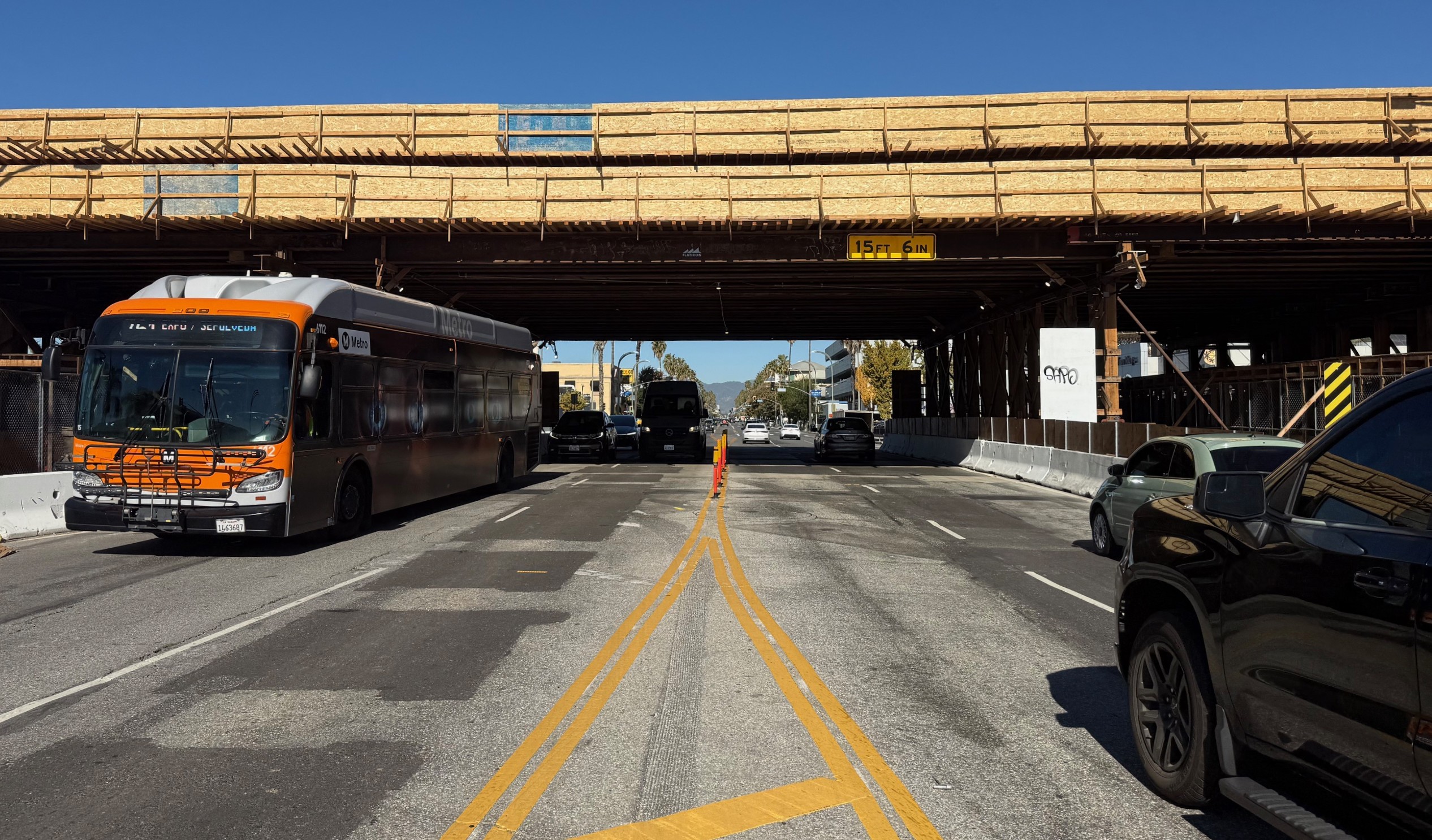
June 26 Metro will be implementing what are in some cases rather substantial service changes.
The Recommendations of the Blue Ribbon panel and remarks made late last year by Metro’s Deputy Executive Officer for Service Planning and Scheduling Conan Cheung signaled substantial trims in revenue service hours were in the offing. Also an evaluation of Metro Rapid service prepared last year outlined criteria for the "adjustments" of the Rapids network subsequentky undertaken last Dec. and this month.
In the face of public consternation Metro management have mostly defended the need to reduce service, with CEO Art Leahy issuing A message to our customers and taxpayers and authoring an op-ed in the Daily News, both of them justifying these actions.
The best extended critique deconstructing and deflating Metro's assertions has been put forward by Thomas Rubin, Controller-Treasurer of the Southern California Rapid Transit District from 1989 until 1993 with an extensive background as a consultant on transportation finance to the public and private sectors and author of numerous papers on transportation issues. In a piece titled Los Angeles: the MTA's Bus Stop Strategy Rubin provides a history lesson and some analysis. This includes thoroughly debunking Metro management's claim that their buses operating at an average of 42% capacity means something is wrong:
The 42% figure is evidently derived by dividing Metro's FY09 bus average passenger load – passengers-miles/vehicle revenue miles – by the average number of seats on Metro buses. The figure looks low, doesn't it? Think about all those empty seats.
However, unlike an airline flight from LAX to JFK, Metro buses make many stops along their routes to pick up and drop off passengers. Bus scheduling is developed around the maximum carrying capacity of a bus at the peak load point of the route during the peak ridership period. This means that, for much of the day, and for most of even the busiest bus trips, there are a lot of empty seats. That's the nature of the transit business.
While some of the worst ideas initially proposed (like having line 460 no longer serve downtown Los Angeles) were discarded or massaged to be less draconian there are still aspects of the changes that leave me shaking my head. For instance line 26 (Virgil) should have been retained a least during peak hours; now instead riders will face cramming onto the already overloaded parallel lines that serve Vermont. Or how about the 450X that in peak will now include selected trips that run from downtown Los Angeles to San Pedro while in mid-day and weekends it will simply run between San Pedro and the Artesia Transit Center as a connector for the Silver Line? Talk about a recipe for customer confusion!
Well, at least they are cancelling the idiotic line 902. The less said about that wrong headed demonstration line, the better.
And this isn't the end of the service trimming as Metro plans additional cuts in December. A presentation Metro Budget Director Frank Shapiro made at the May 25th meeting of the Metro Citizens' Advisory Council included among its assumptions the elimination of 61,000 revenue service hours during the Dec. shakeup. Public hearings for comments on the initial staff proposals to carry out the further cuts will be held in August, so mentally prepare yourself for a junior version of what we just went through.






